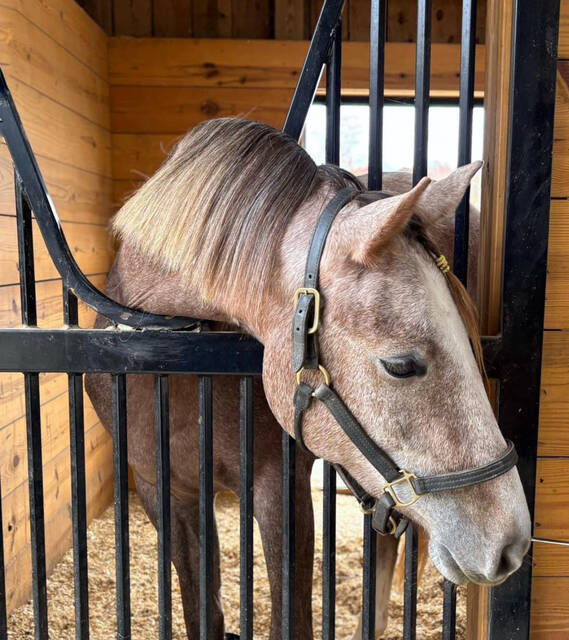As we continue to experience a wet winter with significant temperature swings, there are some management practices horse owners can use to address common concerns regarding their animal’s health and well-being.
Shelter
Horse owners should consider their situation during the winter months to determine what is best for their horse. Every farm is a little different. Some may have a fully enclosed barn and others just run-in sheds. Even in the harshest winter, most horses do not need to be stabled in a barn as long as they have access to a run-in shed or a good stand of trees. Most horses that are kept outside with little or no shelter will grow a longer hair coat which will help keep them warm and prevent heat loss. If a horse is kept clipped for performance reasons, it may be best to blanket the horse when they are turned out in cold, windy and/or wet conditions.
A horse’s respiratory health during the winter can be a concern if housed indoors with limited ventilation. Ventilation should be achieved by keeping windows and doors open as much as possible, even in very cold weather. Use fans to help keep the air moving throughout the barn. Be sure remove any wet bedding daily.
Blanketing
The great “Blanket or Not to Blanket” debate is always discussed in the winter. There is no wrong answer to this question. Senior horses and horses that are clipped are more likely to need blanketing. Typically, our winter weather is mild enough where horses do not require daily blanketing unless we experience extremely cold and wet weather. If you choose to blanket your horse, pay attention to daily temperatures. If high temperatures get into the 40s during the day, blankets should be removed or horses monitored, checking to see if the horse is sweating.
Sweat under a blanket causes moisture retention which can lead to skin irritation and even infections.
If using a blanket, make sure you have the right size for your horse. If a blanket is too tight, the horse may develop sores on their shoulders, withers, and belly where the straps secure the blanket. Make sure you remove the blanket at least once a day. This can be done while the horse is being groomed or during feeding. Give the horse a good look-over and check for rub marks, sores and look for any significant change in body condition (i.e. the horse is losing weight).
Nutrition
Major nutritional concerns during the winter months include providing adequate calories to maintain good body condition. Monitor body condition regularly in the winter months and look for a decrease or increase in weight. In the winter, horses often need extra energy to keep warm. According to University of Rutgers, horses’ energy requirements may increase up to 25% during winter months. Usually, this need can be met by feeding approximately 25% more hay if their hay intake is normally less than they would eat voluntarily (1.5 to 2.0% of their body weight).
If horses are consuming overly mature or low-quality hay, provide a supplement specifically formulated for the individual horse’s stage of life (growing, mature, lactating, etc.). The only way to know the quality of hay is have a sample analyzed by a reputable lab. If you are interested in getting forage samples analyzed, please contact the Richmond County Extension office. We can direct owners on the sampling process and send it to North Carolina Department of Agriculture and Consumer Services, where it is analyzed for a $10 fee.
Water Intake
Believe it or not, proper water intake is a concern for horses in the winter months, because they not drink enough to stay hydrated, especially if water is ice-cold. It is important that horses are given access to an unlimited amount of water (usually 10 gallons or more) that is free of ice. If feeding pelleted feeds or hay cubes, they can be soaked in water to further increase water intake. Horses should always have free access to salt blocks which will help increase their water consumption.
Parasite Management
Although we think of internal parasites being an issue in the summer months, there is potential for parasite infections in winter as well, especially if horses are stalled or confined. Horses should only be de-wormed as needed, based on fecal analysis for the presence of internal parasites. Manure should be picked up on a regular basis, especially in run-in sheds where a lot of manure accumulates. The build-up of manure can contribute to the development of parasite infestation.
Always evaluate your farm’s situation and horse’s needs before deciding what form of shelter should be provided, and whether to blanket or not. All farms are different and may house various ages of horses. This means there is rarely a “One Size Fits All” solution and horse owners should create management plans that are tailored to their farm.
If you have any questions concerning equine or livestock management, please contact the Richmond County Extension office at (910) 997-8255. Visit our website at Richmond.ces.ncsu.edu and follow us on Facebook.

